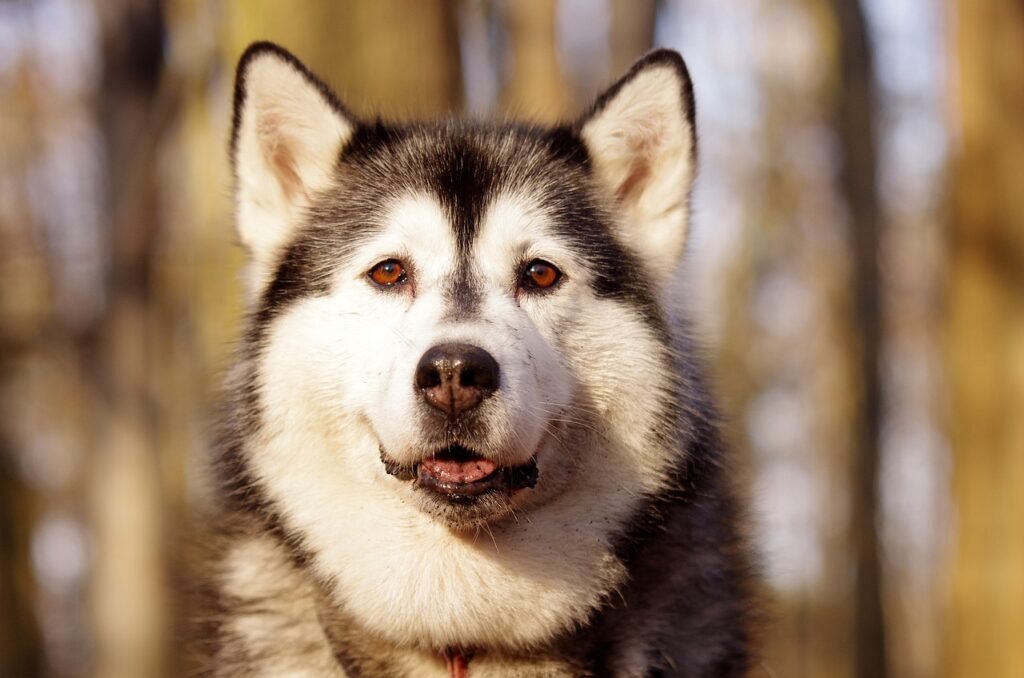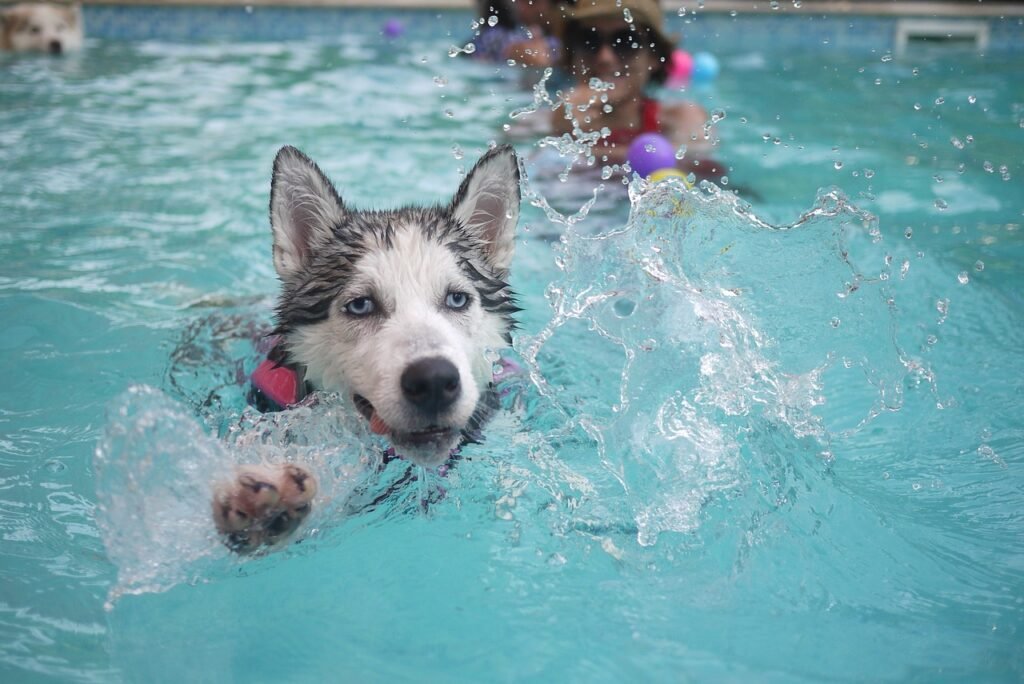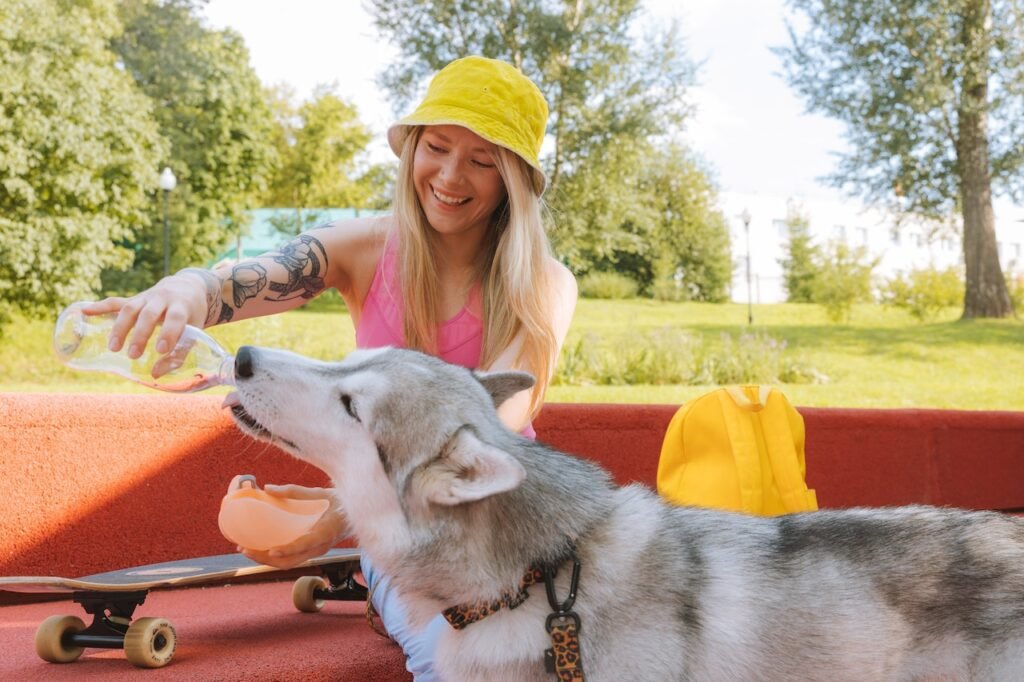Table of Contents
Siberian Huskies are undoubtedly one of the most popular cold-weather dog breeds, renowned for their endurance and strength. Originating from the harsh climates of Siberia, they have developed thick fur coats that protect them from the freezing temperatures of their natural habitats.
However, with many potential owners living in warmer parts of the world, it’s natural to ask: Can Siberian Huskies Live in Hot Weather?
This question is crucial for anyone looking to adopt a husky, as understanding their unique needs and characteristics is vital for responsible ownership. There are many misconceptions surrounding this breed’s ability to adapt to warmer climates, and it’s essential to debunk these to make informed decisions about their suitability.
This guide provides a comprehensive overview of Siberian Huskies and their traits and history to help you better understand this breed. Furthermore, we’ll address the question of their ability to adapt to hotter climates and explore the necessary care and adjustments that will allow your husky to thrive, even in warmer environments.
Educating potential husky owners is essential to guarantee happy, healthy, and responsible ownership. So, let’s embark on a journey of discovery and learn more about Siberian Huskies and their ability to adapt to any climate.
Understanding Siberian Huskies
Siberian Huskies are a majestic dog breed that has captured the hearts of dog enthusiasts for generations. They originated in the Siberian region of Russia, and their history spans over 2000 years. Historically, the Chukchi people of Siberia bred huskies for their endurance, strength, and ability to thrive in the harsh frozen landscapes of the Arctic.
The breed’s physical characteristics and traits make them incredibly well-suited for cold weather. Their thick fur coats contain two layers: a dense undercoat and a longer, coarser outer coat to protect them from freezing temperatures. Additionally, their paws are well adapted for traction on the slippery snow and ice-covered terrain, making them masters of their environment.
Among the most exciting aspects of Siberian Huskies is their coat and fur composition. While it may seem counterintuitive, the dual-layered fur helps regulate their temperature in cold and hot weather. The denser, wooly undercoat traps heat and keeps the husky warm in colder temperatures, while the outer layer is excellent for shielding against the sun’s harmful rays and keeping them cool in hotter weather.
Besides their physical traits, Siberian Huskies have unique instincts and behaviors influenced by their northern heritage. They are pack animals with a solid social nature, making them highly trainable and loyal companions. They also possess a strong prey drive and are known for their energy and endurance, especially in cold weather.
Understanding Siberian Huskies’ origin, history, physical traits, and natural instincts is crucial for appreciating their unique qualities. Whether in cold or hot climates, they are amazing creatures that reward responsible owners with an incredible bond of friendship and loyalty.

Can Siberian Huskies Live in Hot Weather: Real Challenges
While Siberian Huskies have impressive adaptations for cold weather, it’s essential to recognize the challenges they face in hot climates. Their thick fur coats and Arctic heritage make them more susceptible to overheating in high temperatures. Understanding the risks and taking appropriate measures to protect your Husky is essential for their health and well-being.
One of the main concerns for Huskies in hot weather is their susceptibility to overheating. Their dense fur coats act as insulation, trapping heat close to their bodies. This hinders their ability to cool down efficiently through sweating, which is the primary cooling mechanism for most dog breeds.
As a result, Huskies are at a higher risk of heat-related health concerns and potential complications. They can experience heat exhaustion and heat stroke, which can be life-threatening. Symptoms of heat stress in Huskies include excessive panting, drooling, weakness, rapid breathing, and even collapse. It’s crucial to be vigilant and recognize these signs to act promptly and prevent any serious consequences.

Adaptation and Mitigation Strategies
Siberian Huskies are known for their ability to withstand cold weather, but living in hot climates can be challenging. However, there are strategies you can implement to help your Husky adapt and stay comfortable in warmer environments.
1. Case studies and examples of Siberian Huskies living in hot climates
Real-life experiences of Huskies in hot climates provide valuable insights and inspiration. By learning from these examples, you can find successful strategies that have been used to help Huskies thrive in hotter regions.
2. Gradual acclimatization
To help your Husky adjust to warmer environments, it’s important to introduce them to increasing temperatures gradually. Start with short walks during cooler parts of the day and gradually increase the duration and intensity of exercise. This gradual approach allows their bodies to adapt and reduces the risk of heat-related issues.
3. Importance of proper hydration, shade, and ventilation
Providing your Husky access to fresh, cool water is crucial for hydration in hot weather. Creating a shaded area or a well-ventilated space for them to rest is also essential to regulate their body temperature and prevent overheating.
4. Grooming and coat maintenance tips for hot weather
While it may be tempting to shave their fur, it’s important to brush your Husky regularly instead. This helps remove loose fur and prevents matting, allowing for better air circulation and keeping them cool. Avoiding direct sunlight and providing proper shade also helps protect their skin from the sun.
5. Exercise and activity adjustments
Adjusting your Husky’s exercise routine is vital in hot weather. Avoid exercising them during the hottest times and opt for early morning or evening walks when temperatures are cooler. Shorten the duration and intensity of walks, or consider alternative activities that provide mental stimulation without physical exertion. Being attentive to signs of overheating and adjusting activities accordingly is critical.
Following these adaptation and mitigation strategies can help your Siberian Husky adjust and stay comfortable in hot climates. Remember to provide plenty of shade and hydration, closely monitor their well-being, and consult a veterinarian for personalized guidance. With a proactive and responsible approach, you can ensure your Husky’s health and happiness in warmer environments.

Expert Insights and Veterinary Guidance
To ensure your Siberian Husky’s well-being in hot climates, seeking expert insights and veterinary guidance is vital. A veterinarian specializing in Huskies or canine physiology can offer valuable advice on caring for your pet in hot weather.
Interview with a veterinarian
Speaking with a veterinarian with Huskies experience can offer unique insights on keeping your pet comfortable in hot climates. They can provide tailored advice on your Husky’s specific health needs and help you address any concerns.
Professional advice on caring for Huskies in hot weather
A veterinarian can provide professional advice on caring for your Husky in hot weather. They can offer guidance on hydration, exercise, nutrition, and other essential factors that impact your Husky’s health and well-being.
Common misconceptions and myths
There are many misconceptions and myths surrounding Siberian Huskies and hot weather. A veterinarian can help you separate fact from fiction and provide accurate information on keeping your pet safe and healthy in warmer environments.
By seeking professional advice and veterinary guidance, you can enhance your knowledge and make informed decisions on caring for your Siberian Husky in hot climates. Remember to always consult with your veterinarian for personalized advice and support.
Conclusion:
When considering a Siberian Husky, it is essential to emphasize the need for informed and responsible ownership. By evaluating your environment, researching the breed’s specific needs, and considering adoption from rescue organizations, you can provide a suitable and loving home for a Husky in need.
While Siberian Huskies are better suited for colder climates, they can adapt to hot weather with proper care and precautions. It is crucial to provide them with shade and water and limit exercise during the hottest parts of the day.
By approaching ownership with knowledge and responsibility, you can ensure the well-being of your Siberian Husky and enjoy a fulfilling companionship with this unique and beautiful breed.
FAQs
Are Siberian Huskies only suited to cold weather?
While Siberian Huskies are better suited to colder climates due to their thick double coat, they can still adapt to hotter weather with proper care and attention.
What precautions are necessary to ensure a Husky’s well-being in hot weather?
It is important to provide plenty of shade and access to water, limit exercise during the hottest parts of the day, and avoid leaving them in a car or other confined, hot space.
Can I shave my Husky’s coat in hot weather?
No, it is not recommended to shave a Husky’s coat. Their coat functions as natural insulation to keep them cool in the summer and warm in the winter. Instead, regular brushing and grooming can help to keep their coat clean and well-maintained.
Can I still enjoy owning a Siberian Husky in a hot climate?
Yes, but it is important to approach ownership with knowledge and responsibility. Research their specific needs, provide proper care, and consider adopting rescue organizations to impact their life positively.
